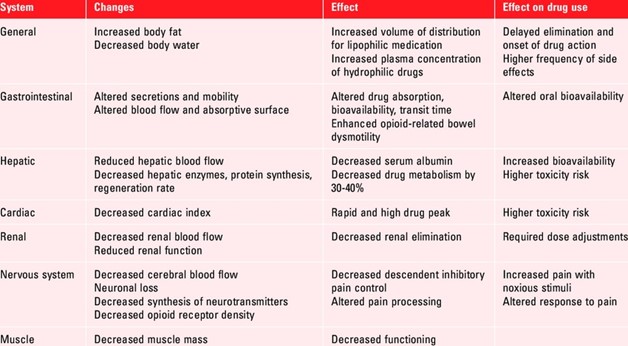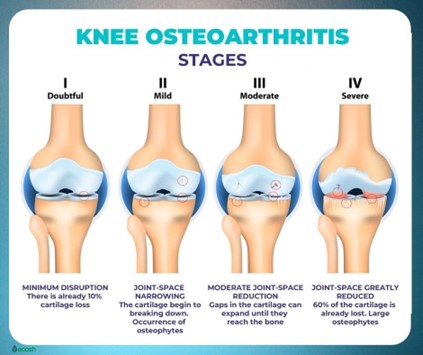A nurse is contributing to the plan of care for an older adult client. Which of the following physiological changes should the nurse recommend considering when administering medication?
Increased liver function
Increased metabolism
Decreased pulmonary function
Decreased kidney function
The Correct Answer is D
As individuals age, there is a natural decline in kidney function. This can result in a reduced ability to filter and excrete medications and their metabolites from the body. The decreased kidney function can lead to a longer half-life of medications, increased drug accumulation, and an increased risk of adverse drug reactions. It is important for the nurse to adjust medication dosages and frequencies based on the individual's renal function to prevent drug toxicity.
Increased liver function: Aging is associated with a gradual decline in liver function. While there may be some individual variations, in general, liver function decreases rather than increases with age. However, changes in liver function can affect the metabolism and elimination of medications. Some medications may require dosage adjustments based on liver function, but it is not a common physiological change in older adults.
Increased metabolism: Aging is generally associated with a decrease in metabolism rather than an increase. The metabolic rate tends to slow down with age, which can affect the pharmacokinetics of medications. Slower metabolism can result in medications taking longer to be metabolized and cleared from the body, potentially leading to prolonged drug effects.

Nursing Test Bank
Naxlex Comprehensive Predictor Exams
Related Questions
Correct Answer is A
Explanation
Answer: A
Rationale:
A) Hgb 20 g/dL:
A hemoglobin level of 20 g/dL is elevated and suggests polycythemia, which can occur in chronic respiratory conditions like COPD due to chronic hypoxia. Elevated hemoglobin levels can increase blood viscosity, leading to complications such as increased risk of thrombosis and cardiovascular stress. This finding indicates a potentially serious issue and should be reported to the healthcare provider immediately to address any underlying causes and manage the client's condition effectively.
B) Oxygen saturation 92%:
An oxygen saturation of 92% is slightly below the typical normal range (95-100%) but is not immediately life-threatening. While it indicates mild hypoxemia, it is a common finding in COPD patients, and the management would typically involve supplemental oxygen or adjustment of therapy. This finding should be monitored but is not the most critical issue to report immediately.
C) Productive cough with green sputum:
A productive cough with green sputum suggests a possible infection or exacerbation of COPD. Although this is an important finding that requires evaluation and possible treatment, it is less critical than an elevated hemoglobin level, which indicates a more acute systemic issue. The green sputum should be reported and managed, but it is not the priority compared to the elevated hemoglobin.
D) Chest x-ray shows hyperinflation of lungs:
Hyperinflation of the lungs is a common radiological finding in COPD due to air trapping. While it is a significant finding, it is generally consistent with the disease's progression and does not indicate an acute problem requiring immediate intervention. Monitoring and managing the underlying COPD are necessary, but this finding is less urgent than the elevated hemoglobin.
Correct Answer is C
Explanation
The statement by the client that indicates an understanding of the teaching is "I plan to take water aerobics classes at the gym near my house." Exercise is an important part of managing osteoarthritis, and water aerobics is a low-impact exercise that can help improve joint mobility and reduce pain.
Option ais incorrect because applying cold compresses may not be the most effective way to manage pain associated with osteoarthritis. Heat therapy is often more effective for this condition.
Option b is incorrect because limiting purine intake in the diet is recommended for clients with gout, not osteoarthritis.
Option d is incorrect because ibuprofen can be an effective pain reliever for clients with osteoarthritis.

Whether you are a student looking to ace your exams or a practicing nurse seeking to enhance your expertise , our nursing education contents will empower you with the confidence and competence to make a difference in the lives of patients and become a respected leader in the healthcare field.
Visit Naxlex, invest in your future and unlock endless possibilities with our unparalleled nursing education contents today
Report Wrong Answer on the Current Question
Do you disagree with the answer? If yes, what is your expected answer? Explain.
Kindly be descriptive with the issue you are facing.
